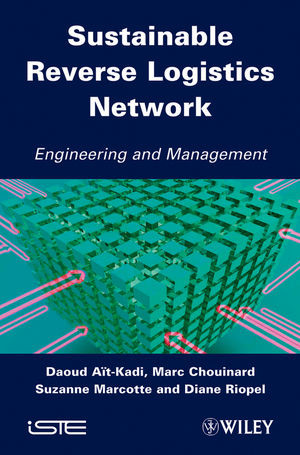

Most ebook files are in PDF format, so you can easily read them using various software such as Foxit Reader or directly on the Google Chrome browser.
Some ebook files are released by publishers in other formats such as .awz, .mobi, .epub, .fb2, etc. You may need to install specific software to read these formats on mobile/PC, such as Calibre.
Please read the tutorial at this link: https://ebookbell.com/faq
We offer FREE conversion to the popular formats you request; however, this may take some time. Therefore, right after payment, please email us, and we will try to provide the service as quickly as possible.
For some exceptional file formats or broken links (if any), please refrain from opening any disputes. Instead, email us first, and we will try to assist within a maximum of 6 hours.
EbookBell Team

4.8
24 reviewsTraditional logistical chains have enabled us to respond efficiently to the needs of customers in terms of services and products. However, the returns, rejects and by-products of these activities have been eliminated or ignored. Reverse logistics aims at valuing these products using a value creation network integrating recovery, processing, recycling, distribution or clean removal processes. In the context of sustainable development, integrating economic, social and environmental factors, these activities raise questions concerning the design of products, processes and logistic networks. Taking these considerations into account involves significant changes that affect business models as well as consumer habits. New working methods and a long-term vision are the new bases for sustainable logistic networks.
The objective of this book is to supply an educational tool for engineering schools, as well as a management tool for the efficient implementation of the reverse logistics function. It brings together the knowledge acquired by the scientific community. Even if reverse logistics has been the subject of several books over the past few years, very few theories have been developed and the subject is far from being exhausted. This book proposes generic concepts and processes that can be adapted to all businesses producing goods and services and which aim to integrate reverse logistics. These processes will enable us to shed light on their complexity and to take into account all the important variables.
Contents
1. Logistics Challenge.
2. Reverse Logistics Engineering.
3. Ecodesign.
4. Value Loops.